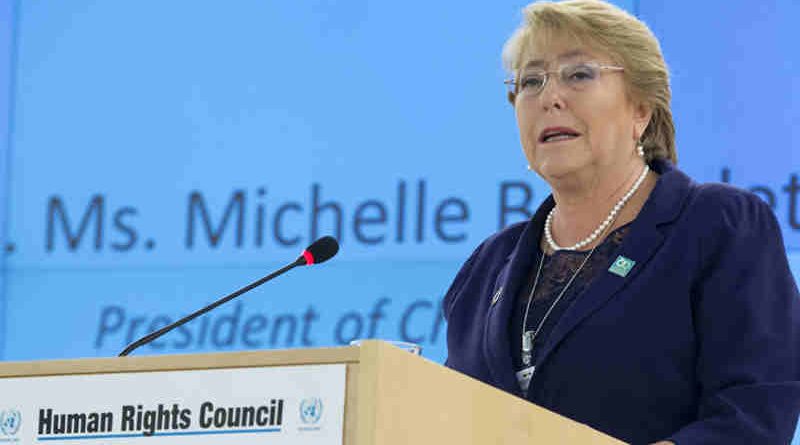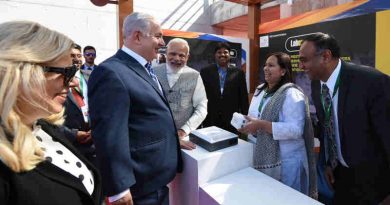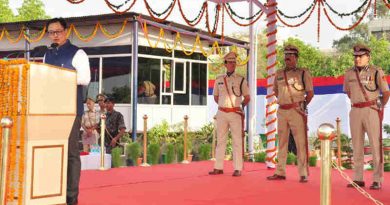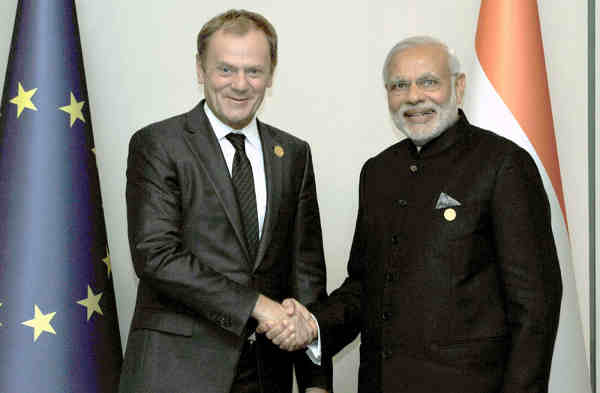India Must Stop Arbitrary Arrests of Activists: Michelle Bachelet
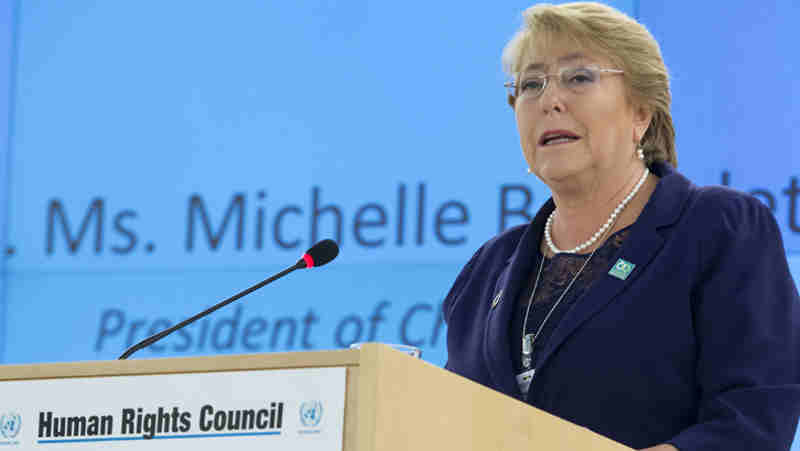
UN High Commissioner for Human Rights Michelle Bachelet on Tuesday (October 20) appealed to the Government of India to safeguard the rights of human rights defenders and NGOs, and their ability to carry out their crucial work on behalf of the many groups they represent.
Bachelet expressed regret at the tightening of space for human rights NGOs in particular, including by the application of vaguely worded laws that constrain NGOs’ activities and restrict foreign funding.
Bachelet cited as worrying the use of the Foreign Contribution Regulation Act (FCRA), which a number of UN human rights bodies have also expressed concern is vaguely worded and overbroad in its objective. The Act prohibits the receipt of foreign funds “for any activities prejudicial to the public interest.”
The Act, which was adopted in 2010 and was amended recently, has had a detrimental impact on the right to freedom of association and expression of human rights NGOs, and as a result on their ability to serve as effective advocates to protect and promote human rights in India.
It is expected that the new amendments will create even more administrative and practical hurdles for such advocacy-based NGOs. Most recently, Amnesty International was compelled to close its offices in India after its bank accounts were frozen over alleged violation of the FCRA.
“The FCRA has been invoked over the years to justify an array of highly intrusive measures, ranging from official raids on NGO offices and freezing of bank accounts, to suspension or cancellation of registration, including of civil society organizations that have engaged with UN human rights bodies,” Bachelet said.
She added that constructive criticism is the lifeblood of democracy and even if the authorities find it uncomfortable, it should never be criminalized or outlawed in this way.
Activists and human rights defenders have also come under mounting pressure in recent months, particularly because of their engagement in mass protests against the Citizenship Amendment Act (CAA) that took place across the country earlier this year.
More than 1,500 people have reportedly been arrested in relation to the protests, with many charged under the Unlawful Activities Prevention Act (UAPA) – a law which has also been widely criticized for its lack of conformity with international human rights standards.
Charges have also been filed under this law against a number of individuals in connection with demonstrations that date back to 2018. Most recently, the 83-year-old Catholic priest Stan Swamy, a long-standing activist engaged in defending the rights of marginalized groups, was charged and reportedly remains in detention, despite his poor health.
“I urge the Government to ensure that no one else is detained for exercising their rights to freedom of expression and peaceful assembly – and to do its utmost, in law and policy, to protect India’s robust civil society,” the High Commissioner said. “I also urge the authorities to carefully review the FCRA for its compliance with international human rights standards and to release people charged under the UAPA for simply exercising basic human rights that India is obligated to protect.”
She also encouraged India’s national institutions to strengthen the social and legal protections that enable civil society to function freely and contribute to progress.
Bachelet said the UN Human Rights Office would continue to closely engage with the Government of India on issues relating to the promotion and protection of human rights, and will also continue to monitor developments that positively and negatively affect civic space and fundamental rights and freedoms.
UPDATE
However, the Indian government has brazenly dismissed Bachelet’s comments. In an instant statement, India said that violations of law cannot be condoned under the pretext of human rights and a more informed view of the matter was expected of the UN body.
According to reports, a spokesperson of India’s Ministry of External Affairs Anurag Srivastava asserted that India is a democratic polity based on the rule of law and an independent judiciary, indicating that the country will not entertain external interference in its internal matters.


